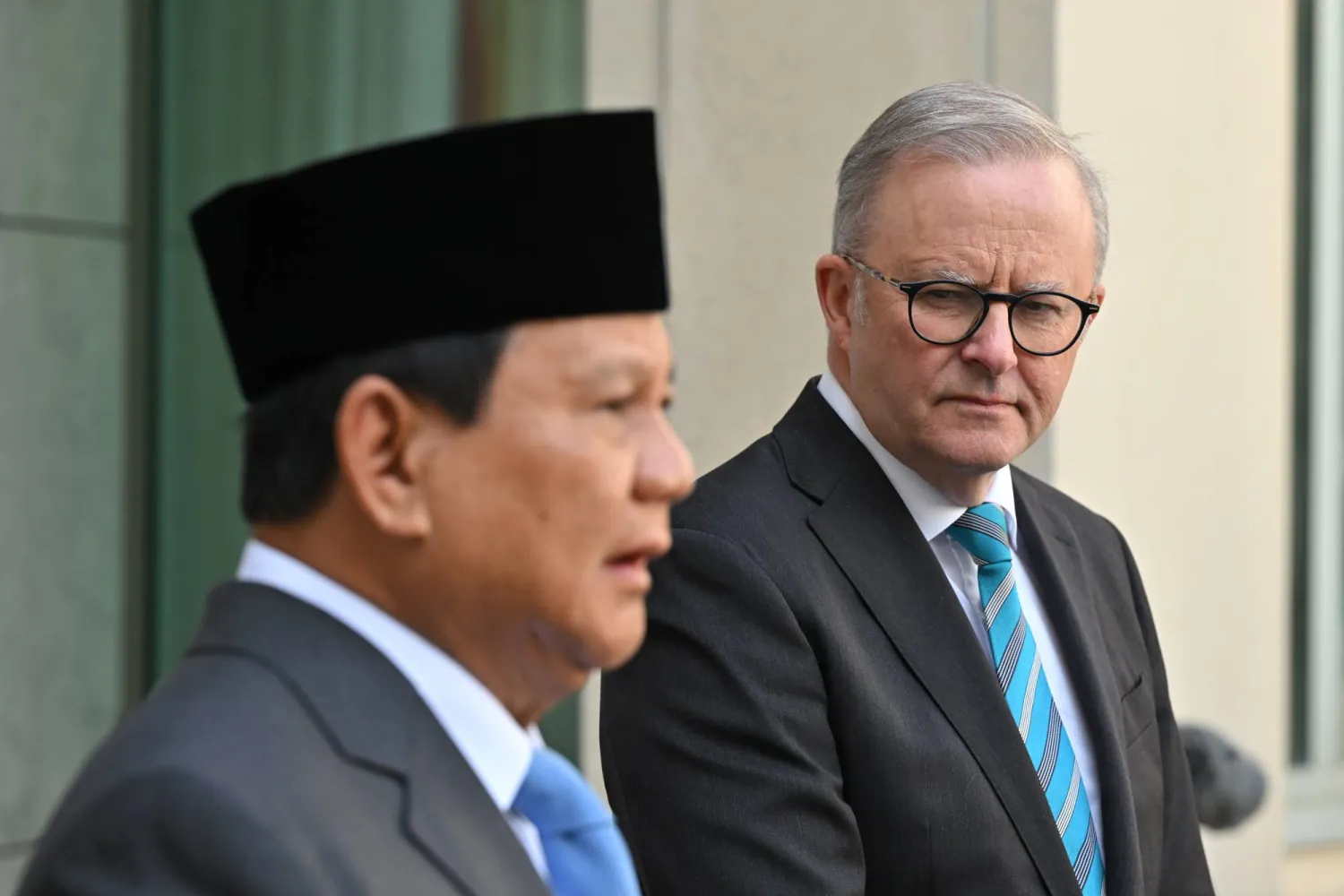Indonesia and Australia on Tuesday finalized a new bilateral defense treaty that will enhance the neighboring nations' ability to operate their militaries in each other's territory.
The agreement was reached as Indonesian president-elect Prabowo Subianto, who also serves as defense minister, met with Australian officials at the country's Parliament earlier Tuesday.
The bilateral relationship is becoming increasingly important to Australians in face of growing tensions with China. New Australian prime ministers typically make Jakarta one of their first overseas destinations, The Associated Press said.
The pact will be signed within days, when Australian Defense Minister Richard Marles visits Jakarta.
Marles said the successful conclusion of negotiations after two years was significant for both countries’ national security.
“What this agreement will do is provide for much greater interoperability between our defense forces, it will provide for much more exercises between our defense forces, it will see us working together the global commons to support the rules-based order and, importantly, it will allow us to operate from each other’s countries,” Marles told reporters.
“And in that sense, this agreement will be the deepest, the most significant agreement that our two countries have ever made,” Marles added.
Subianto described the agreement as “ironing out some legalistic details” and said that it achieved “great progress” in the two countries' defense cooperation.
Euan Graham, an analyst at the Australian Strategic Policy Institute think tank, questioned the pact’s strategic value to Australia.
Subianto made clear that Indonesia would remain non-aligned under his leadership, Graham said. This means Indonesia will remain among a group of countries that don’t want to be officially aligned with or against any major power bloc such as the United States.
“The issue is that Indonesia doesn’t share the same threat perception as Australia towards China,” he added.
With around 275 million people, Indonesia has 10 times the population of Australia, which has fewer than 27 million people.
Subianto’s overnight Canberra visit was his first to Australia since he was elected president in February.
He noted that Australian Prime Minister Anthony Albanese was the first foreign leader to congratulate him on his election victory.
“We have had our ups and downs as the political situation and the geopolitical situation of course evolved, but I think we are very happy today to have several decades of very close cooperation," Subianto told reporters and added he was determined to continue "this good neighbor relationship."
Albanese said he looked forward to attending the president’s inauguration in October. Albanese was elected prime minister in 2022 while Indonesian President Joko Widodo was in power.
“There is no more important relationship than the relationship between our two great nations,” Albanese said.
“The strides that President Widodo and I have made together toward a deeper economic relationship will be the foundation of the work that I know will continue under your administration,” Albanese added.









